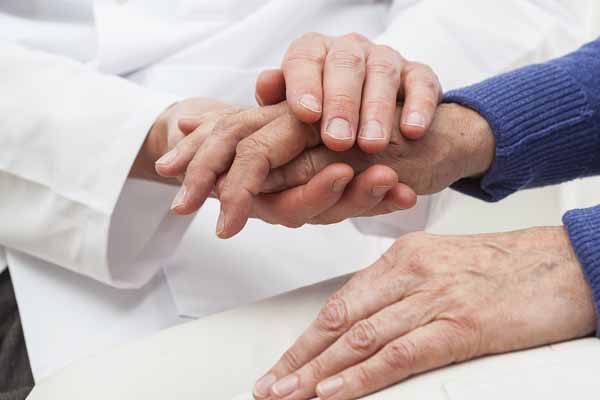
People coping with suicidal thoughts can now call 988, the new three-digit number for the National Suicide Prevention Lifeline.
The simplified number, which replaces a longer 800 number, allows people to get help via phone, text, or online chat for any mental health-related distress, according to the Substance Abuse and Mental Health Services Administration (SAMHSA). It was scheduled to go live July 16.
Counselors on the hotline can assist callers with “thoughts of suicide, mental health, or substance use crisis – or any other kind of emotional distress,” SAMHSA’s website says. “People can also dial 988 if they are worried about a loved one who may need crisis support.”
In addition to this update, the Health Resources & Services Administration in May launched a separate National Maternal Mental Health Hotline – 1-833-9-HELP4MOMS (1-833-943-5746).
Violent deaths – including suicide and homicide – account for 13% of pregnancy-related deaths in Texas, according to the Texas Maternal Mortality and Morbidity Task Force. Also, Texas spends about $2.2 billion each year helping young mothers and their children deal with maternal mental health conditions, according to a 2021 report.
Mental health issues also are associated with preterm birth and more complicated deliveries, says Austin obstetrician-gynecologist Kimberly Carter, MD, who is on the Texas Medical Association’s Behavioral Health Subcommittee and serves as vice chair of the Committee on Medicaid, CHIP, and the Uninsured.
“It definitely increases the morbidity for a mom to have untreated mental health issues,” she said.
Suicide claimed the lives of 3,924 Texans in 2020, according to the Centers for Disease Control and Prevention. The new phone numbers are an important tool for patients and physicians to address the problem, Dr. Carter says.
A hotline counselor can be very effective in talking someone out of suicide and directing that person to resources for further help – but only if the resources are there, she says.
“[Calling a hotline] might take you off the ledge that day because you had someone who was trained, but you need resources to keep you back from the ledge,” she said. “You need access to mental health [professionals].”
Lack of adequate insurance coverage keeps many Texans from those important resources, she says.
“[Insurers] don’t pay psychiatrists and counselors enough to take their insurance, and so we end up pricing out mental health resources to a large segment of the population,” she said. “Even if they’re well insured … [patients] can’t afford $150 or $200 a week to go see a therapist. So, we need to prioritize paying for mental health services the way we prioritize paying for the treatment of hypertension and heart disease.”
Texas’ recent steps to address behavioral health needs include setting up the Child Psychiatry Access Network, which offers pediatricians and family physicians statewide free telemedicine-based consultation and training on community psychiatry.
However, Texas ranked last out of all 50 states and the District of Columbia for overall access to mental health care, according to this year’s State of Mental Health in America report.
Suicide hotlines frequently are underused by those who need them most because people are simply unaware of them, Dr. Carter says. Physicians can help rectify that by providing information about the hotlines in their offices and discussing them during office visits.
Nevertheless, the National Suicide Prevention Lifeline has struggled to handle the calls it does receive, according to a March story in The New York Times. Nationally, one in six calls to the hotline has ended without reaching a counselor, and 20% to 25% of calls from Texas were abandoned by those phoning in during the last quarter of 2021.
In June, Austin psychiatrist and telehealth expert Thomas J. Kim, MD, testified for TMA before the Texas Senate Committee on Health & Human Services when it took testimony on its interim charge to examine “the impact of state and federal pandemic policies – including agency guidance, licensing and regulatory actions, and health care industry policies – on patient care and treatment delivery.” On TMA’s behalf, Dr. Kim called on lawmakers to codify regulations that support telehealth and to invest in secure access to health care for all Texans.
The same month, Lubbock pediatrician Celeste Caballero, MD, testified for TMA at a hearing of the Senate Special Committee to Protect All Texans – formed in response to the Uvalde school shooting in May. She called for bolstering the state’s mental health care system and enhancing family-child interventions.